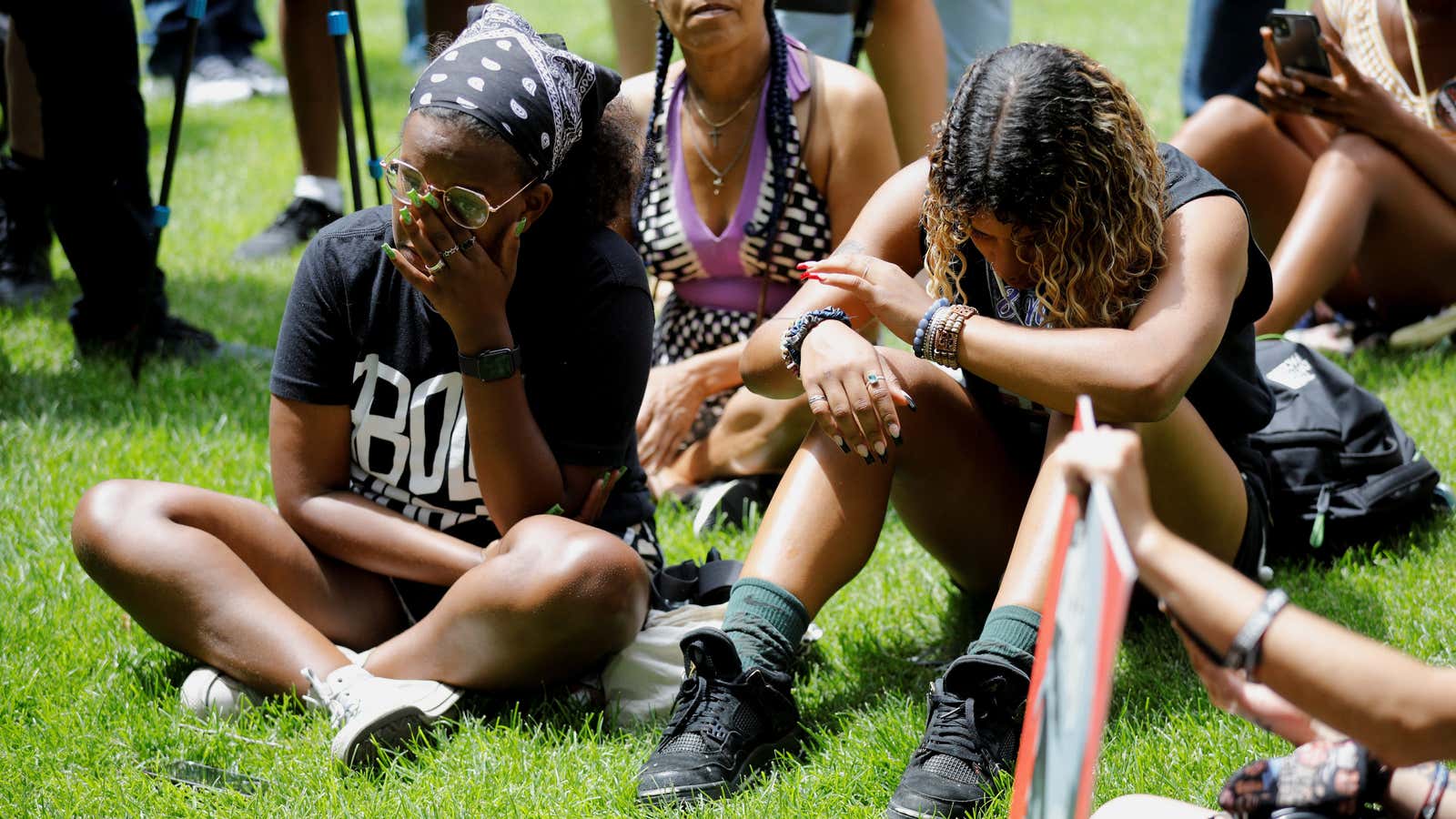Derek Chauvin, the former Minneapolis police officer who was convicted of killing George Floyd in 2020, was sentenced to 270 months, or 22.5 years, in jail today (July 25). Under Minnesota law, he may be eligible for parole after 15 years.
Floyd’s death last year sparked nationwide, and later global, protests against racism and police brutality. Here’s what you need to know about today’s sentencing hearing:
Did Derek Chauvin get the maximum sentence?
On April 20, 2021, Chauvin was found guilty of unintentional second-degree murder, third-degree murder, and second-degree manslaughter. Under Minnesota law, he had to be sentenced based on guidelines for the most serious of the crimes he is accused of committing, which is second-degree murder.
In Minnesota, second-degree murder is one of the most severe crimes that can be committed. It carries a maximum sentence of 40 years, but for someone with no criminal record, like Derek Chauvin, it goes down to 30 years.
The state of Minnesota sought 30 years, while Chauvin’s lawyer Eric Nelson (pdf, p. 9) asked for probation and time served due to Chauvin’s “zero criminal history score, his mature age, low risk to re-offend, and the support of his friends and family.”
Criminals convicted in Minnesota are eligible for parole, or “supervised release,” after they serve two-thirds of their sentence. In Chauvin’s case, that would make him eligible to be released for good behavior after 15 years.
Who spoke at Derek Chauvin’s sentencing hearing?
The hearing began with a video of Gianna Floyd, George Floyd’s 7-year-old daughter, who said: “I want to play with him.”

George Floyd’s nephew and brother then gave “victim impact statements”—a platform for victims or those connected to them “to tell the judge about the impact of the crime,” according to the Minnesota Department of Public Safety (pdf). On behalf of the Floyd family, they both asked judge Peter A. Cahill to give Chauvin the maximum sentence.
Speaking publicly for the first time, Derek Chauvin’s mother, Carolyn Pawlenty, said her son is “a good man,” and pleaded for a lenient sentence. “When you sentence my son, you will also be sentencing me,” she said. “I will not be able to see Derek, talk to him on the phone, or give him a special hug. [W]hen he is released, his father and I most likely will not be here.”
What did Derek Chauvin say?
Chauvin spoke briefly to say that he could not give a full statement due to “additional legal matters.” He addressed his condolences to the Floyd family and said that further information would come to light soon, but did not specify what kind.
This story was updated with details about the length of Chauvin’s likely parole.
